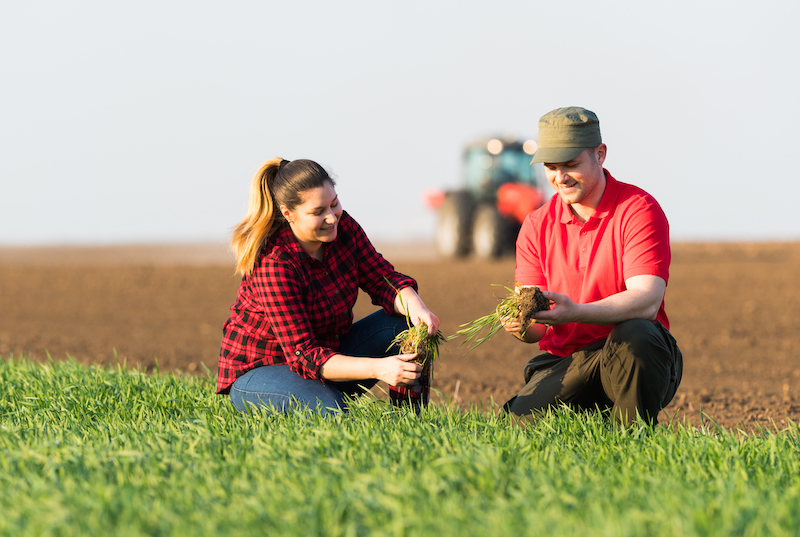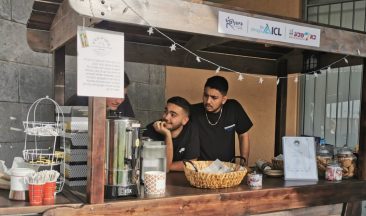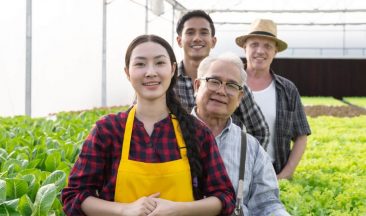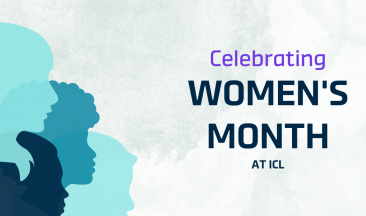One of the fundamental challenges faced by the human race is how to feed itself. The perpetual problem of food security goes beyond just individual groups.
It’s becoming increasingly recognized that new technologies in sustainable agriculture are the key to global food security. As a global community, we are currently facing four main challenges which have led us to create a movement for sustainable agriculture.
- Population growth
- Global climate change
- Soil depletion and erosion
- Strain on water resources
The UN predicts that the global population will reach 10.9 billion during this century. In addition to population growth, consumerism is also growing. As prosperity increases in some countries, there is an increased demand for non-essential Western-style food products. This includes a much higher consumption of meat and other animal-based products, which in turn requires the use of agricultural land to grow animal feed.
Even though the causes and solutions are disputed, global climate change is a reality. Both industrial and sustainable agriculture depend on the ability to analyze, anticipate and adapt to climate change. Some challenges include a combination of rising temperatures, storms, flooding, and desertification. Additionally, sustainable agriculture is important for keeping in line with the growing impetus to reduce carbon footprint.
Intensive farming with a focus on short-term gains leads to soil depletion. Consecutive harvests strip the soil of large quantities of nutrients, and if the levels of these nutrients are not regularly tested and replenished through fertilizer applications, the soil becomes deficient in nutrients. To maintain soil productivity and fertility, fertilization is essential. Nutrient losses can also occur from soil erosion and nutrient leaching, which can also be addressed by correct nutrient management practices.
Population growth and climate change are both placing a growing strain on water resources. Farmers are able to adapt to water shortages, and even contribute to alleviating them, by utilizing drip irrigation. Drip irrigation not only increases the water use efficiency, but it delivers the precise amount of water at the precise time that it is needed by the plant. Other solutions include planting drought-resistant crops and rainwater harvesting.
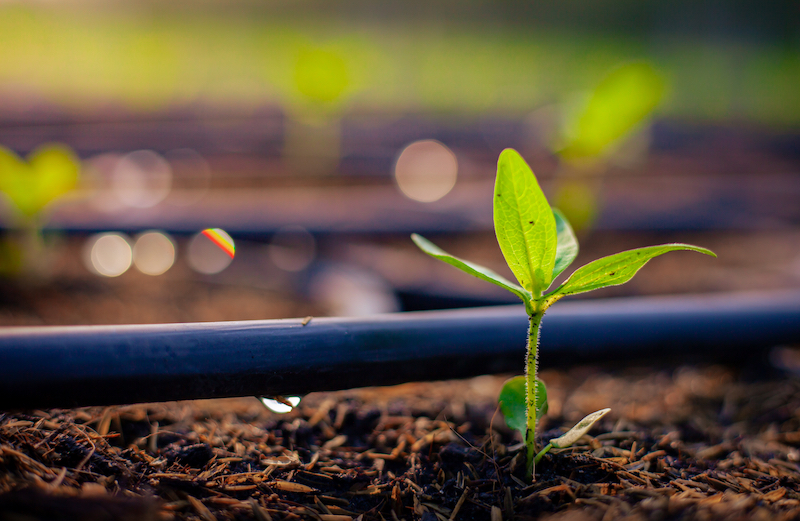
Why is Sustainable Agriculture Important?
UN Sustainable Development Goals (SDGs)
The United Nations has defined 17 Sustainable Development Goals (SDGs). Each goal is a broad target for the improvement of the human condition. They range from ending poverty and hunger to climate action and infrastructure development. The 17 goals – and the problems they seek to tackle – are very much interconnected. The thinking behind achieving these key goals is long-term, strategic, and holistic.
The UN’s second Sustainable Development Goal is Zero Hunger. According to the UN, over 690 million people around the world (around 1 in 9 of the world’s population) suffer from hunger. Even with the challenges of population growth, climate change, water shortages, and soil depletion, in theory, there are enough natural resources to eliminate food poverty. The key to effectively developing these resources is sustainable agriculture.
Hunger and food shortages are not simply a byproduct of poverty. They are a result of outdated and ineffective farming methods, both in advanced economies and in the developing world. Sustainable agriculture, which includes ICL’s proven fertilizer solutions, can help produce secure food supplies for local communities within a short time – sometimes even within a single growing season. It’s important to note that while fertilizers are one piece to the puzzle, there are other inputs and management practices that work in tandem to provide sustainable agricultural solutions.
Once wider consequences of hunger and malnutrition are no longer an issue, there would be a stronger and more stable human foundation from which to implement the other 16 SDGs. Communities are able to shift their focus from the exigencies of short-term survival, toward medium and long-term planning for social and economic development.
ICL is deeply committed to helping achieve these goals and aligns its own business models and practices with them. A major challenge is that the impact of sustainable agriculture on global food shortages is not yet widely understood. One of ICL’s goals is to explain exactly why sustainable agriculture is so important and disseminate the knowledge at grassroots level.
The Impact of Sustainable Agriculture
The ICL – SDG Interface
There are 5 UN sustainable development goals that are directly connected to ICL’s global enterprises. ICL seeks to incorporate a philosophy of corporate environmental responsibility at the heart of every new business venture and uses them as a compass for all strategic planning. These goals are:
- Zero Hunger
- Clean Water and Sanitation
- Decent Work
- Good Health
- Responsible Consumption and Production
Decision-makers, investors – and farmers – need to see working models of sustainable agriculture and understand the technology that makes it possible. Demonstrating the short-term ROI for a particular agricultural innovation can be relatively simple. However, persuading decision-makers to think in broader terms and work towards less tangible medium-term goals of increased social stability (and the economic growth that it generates) can sometimes be more challenging.
You may want to read more about:
Sustainability – not just another catchphrase
Top 10 Agriculture Trends to Watch in 2024
Digital Solutions in Agriculture – advancing global food security
ICL: New Technologies in Sustainable Agriculture
ICL’s groundbreaking R&D in the field of Agriculture and AgTech is already making an impact on sustainable agriculture. A major advantage to our technology is that it is scalable. It can readily be implemented by industrial farmers, individual farmers, or family units attempting to cultivate small lands. Additionally, ICL’s sustainable fertilizers and solutions are designed to be user-friendly and applicable at field level.
ICL is committed to connecting all agricultural enterprises to huge global data networks. The technology can directly benefit everyone; from industrial-scale food producers and major plantations, down to individual farmers, smallholders, and urban gardeners.
AI software makes it possible to extrapolate key information from mass data and devise precise localized solutions to agricultural challenges. Where possible, these are combined solutions that match ideal seed choices with computerized irrigation systems, advanced sustainable fertilizer options, safe pesticides, and microclimate control.
The Role of Fertilizers in Sustainable Agriculture
The role of fertilizers in sustainable agriculture is of key importance. Fertilizers are not just an effective remedy for soil depletion. When used in conjunction with AgTech software, fertilizers are a cost-effective and environmentally friendly solution to improve crop yields and provide healthier and better quality crops.
Controlled-release fertilizers (CRF) and fertigation (fertilizer is incorporated with the irrigation system) allow for agricultural specialization and highly efficient and cost-effective farming practices.
Granulated CRF products and fertigation allow for more precise and efficient use of fertilizers, by minimizing any possible damage to crops from ‘fertilizer burn’ and reducing nutrient losses to the environment, thus reducing pollution. ICL provides farmers, growers, and manufacturers with a broad array of advanced fertilizers that are suitable for local needs.
Polysulphate® is a unique multi-nutrient fertilizer exclusively mined in the UK by ICL. This fertilizer contains four key plant nutrients: sulfur, potassium, magnesium, and calcium and holds organic certificates in many countries. Polysulphate has a low environmental impact as it has the lowest carbon footprint when compared to common fertilizers. This helps farmers to manage their carbon targets and lower greenhouse gas emissions from their businesses.
ICL biostimulants offer plant life-cycle solutions for plant nutrition and stimulation, soil revitalization, seed treatment, and plant health. Biostimulants assist with quick recovery from stresses like drought, heat, or disease and encourage better root growth, and boost soil microbial activity.
These high-performance fertilizers provide critical nutrients to increase yields and help to grow healthier and stronger crops in a sustainable way. All ICL fertilizers are backed by technical support and advice from agronomists.
To ensure proper application, ICL agronomists constantly train farmers, fertilizer dealers, and crop advisors on the correct use of ICL fertilizers by recommending proper dose and application time according to the crops and soil’s needs. This supports farmers to achieve balanced plant nutrition in sustainable, productive farming systems.
The proper use of fertilizers plays an essential role in the fight against climate change. Fertilizers reduce pressure on forests and help avoid land-use changes by increasing the productivity of available, arable land. This is crucial for climate change mitigation, as deforestation and land-use conversion combined represent about 30–50% of agricultural greenhouse emissions.
Industrial and sustainable agriculture don’t have to be mutually exclusive concepts. Large-scale industrial farming may already seem efficient, but integrating sustainable agricultural methods can cut operating costs, increase crop yields and quality, reduce pollution and ensure a better tomorrow.
